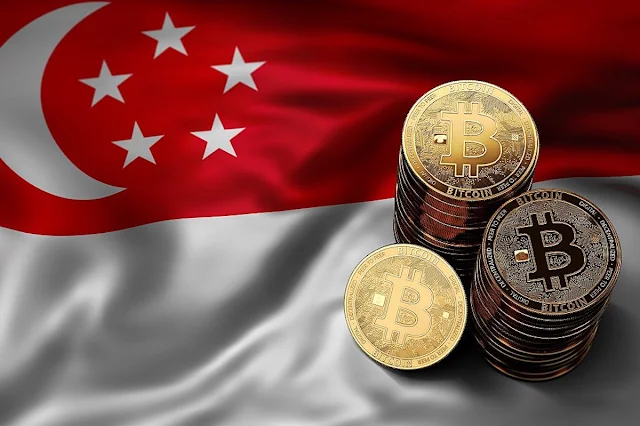Singapore aspires to become a global hub for cryptocurrencies, but its “vigilant buying” approach does not mean that it allows all types of cryptocurrencies to be traded, and perhaps this is proven by the controversy that has arisen due to the cryptocurrency BTS linked to the group. K-pop is the most famous in the world.
In a report published by the American “Bloomberg” website, writer Andy Mukherjee quoted the Financial Times that the Financial Authority in Singapore withdrew last July the work permit that it had submitted to the cryptocurrency trading platform Bitget.
The platform sparked a huge controversy after engaging in a legal battle over the promotion of the "Army Coin" coin, which aims to fund the Korean band BTS for life.
The general management of Hybe, which is responsible for the Korean group's business, denied the platform's relationship with the group and threatened to resort to court.
The Monetary Authority of Singapore indicated on its website that the Singapore-based BitGate platform no longer enjoys license exemption under the Payment Services Regulations 2019, without providing an explanation of the reason for the decision.
But the annual Financial Stability Report issued by the Central Bank last week acknowledged for the first time that “the growing interest in digital currencies requires the imposition of tight monitoring.”
The writer stated that the increasing demand for digital currencies is not a cause for concern in the short term.
Especially since the peak cryptocurrency trading using the Singapore dollar is less than 1% of the average daily trading volume on the local exchange.
However, the increasing share of blockchain-based currencies (the mechanism that ensures verification of buying and selling transactions) in investors' portfolios can create a so-called "wealth effect".
The Monetary Authority of Singapore also noted that consumption could be "vulnerable to significant shocks" due to the volatility of these digital assets.
Singaporeans have been the richest for at least a decade, and real estate represents the main source of wealth with nearly 40% of household assets and 75% of burdens.
Private home prices have risen nearly 9% since the start of the pandemic.
Higher prudential savings and fewer opportunities for discretionary spending reduced credit card debt to a new low of 1% of GDP.
Currently, cash and deposits exceed household debt by a large margin.
Attractive environment
Singapore is a suitable environment to attract all kinds of exotic financial products.
Although it has made a deliberate decision to be a major global player in the cryptocurrency markets, it does not want to open its doors on a large scale.
Of the 170 companies that applied for licenses last year to trade cryptocurrency in Singapore, only 70 were accepted, including the local units of Coinbase and Binance.
Among the other companies that have obtained a license is the company "DBS".
Which tripled the value of its assets in just one month to reach 600 million Singapore dollars (440 million US dollars) by the end of last October.
Given this growing appetite, Singapore must be selective about the type of cryptocurrency it promotes to investors, and that means strict regulation and tight control over this market.
The coin, which was launched to fund BTS members for life, pushes the boundaries of the "prudent buy" approach to financial innovation.
Sources : Bloomberg | Tellerreport

